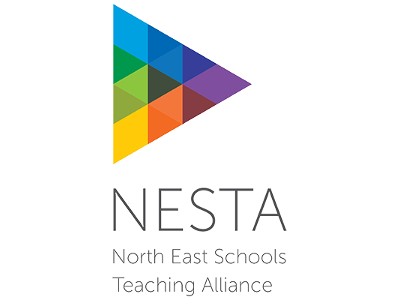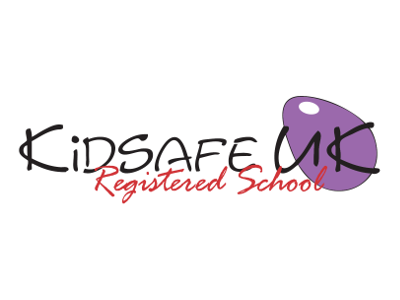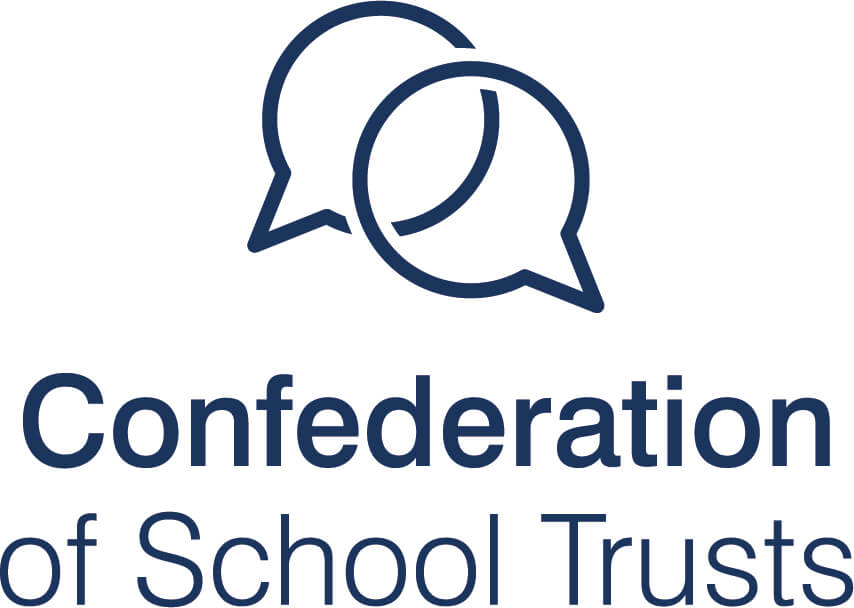Writing
At Normanby Primary School we want children to be able to communicate their knowledge, ideas and emotions through their writing. Acquiring a broad bank of vocabulary at a young age is essential so that pupils develop oracy and can communicate effectively through conversation. Writing is underpinned by speaking and is at the heart of all learning. Adults model ambitious vocabulary throughout school and pupils are encouraged to use it in their speech and writing.
Statutory requirements for the teaching of Writing are detailed in the English Programmes of Study for Key Stage 1 and Key Stage 2 (2013), and in the Statutory Framework for the Early Years Foundation Stage (2023).
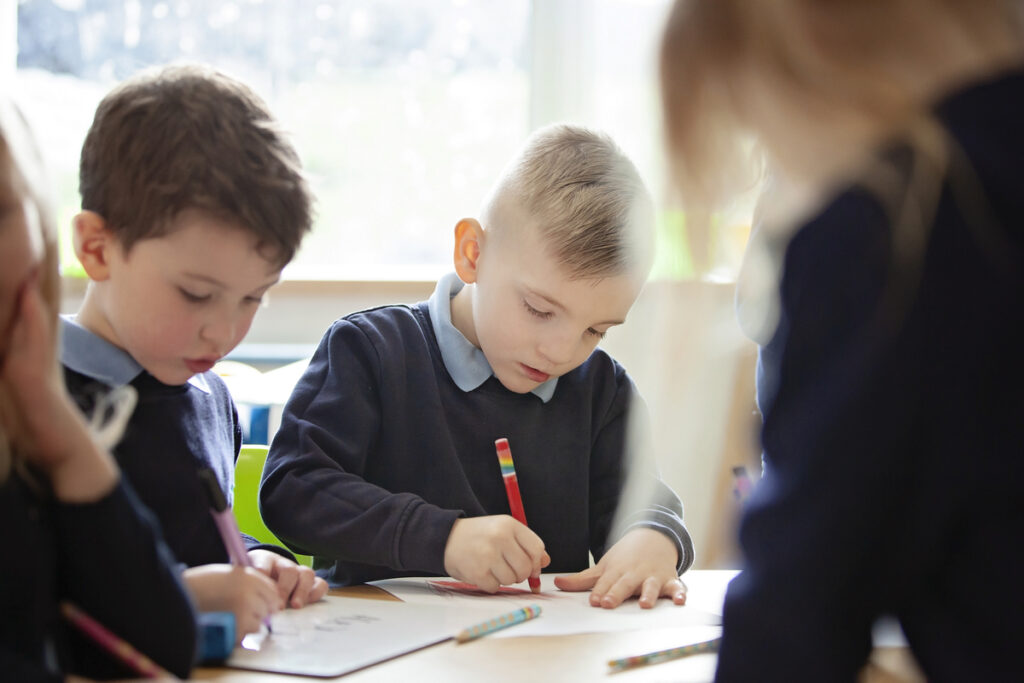
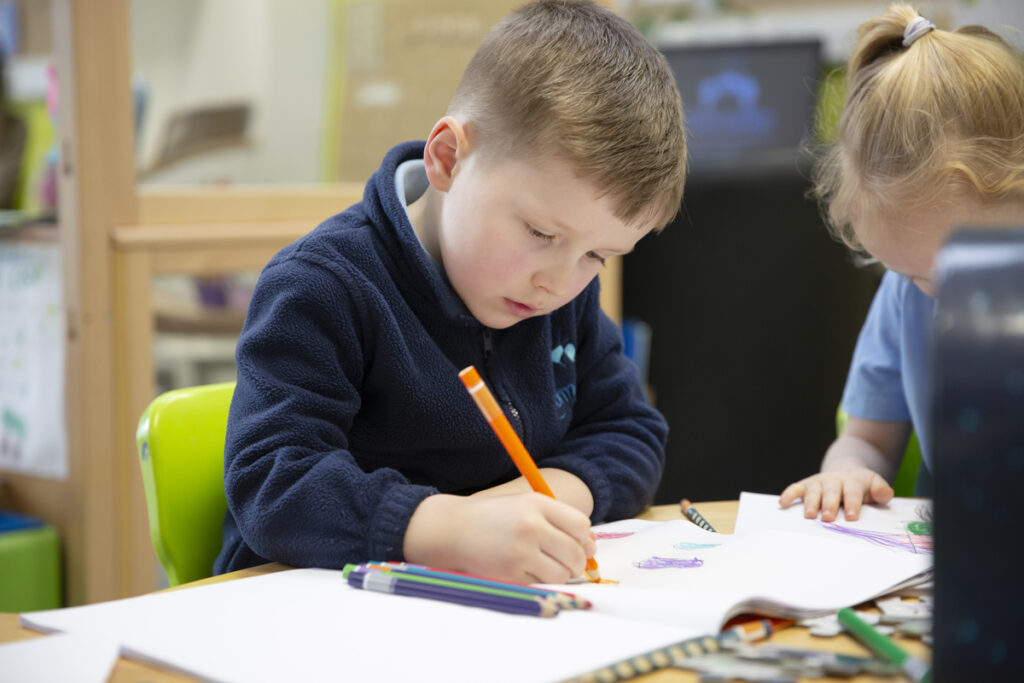
Handwriting
In the Foundation Stage and Key Stage 1, children are taught the correct letter formation of individual letters. As children progress through school, letter formation becomes consistently embedded as they learn to write with independence. In lower Key Stage 2, pupils are taught to join some letters within words. In upper Key Stage 2, pupils are expected to consistently use a joined style of handwriting to achieve the expected standard.
Spelling
In the Foundation Stage, pupils start to develop an understanding of spelling through the teaching of phonemes and tricky words. Little Wandle Letters and Sounds Revised is the chosen phonics programme used by school. This is continued into Year 1 as the children develop their knowledge of phonics and early spelling patterns further. When children complete the school’s phonics programme, they are taught spelling patterns and rules from the English Programme of Study. Throughout Key Stage 1 and 2, weekly spelling lists are sent home for pupils to learn. Pupils have access to an app called Spelling Shed on their iPads to practise and embed the process.
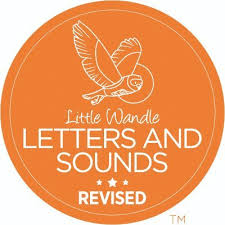
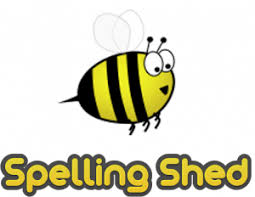
Grammar and Punctuation
Where possible, grammar and punctuation objectives are taught contextually through sequences of writing. Teachers plan lessons which help pupils to embed the required grammar and punctuation skills through appropriate genres of writing and by making connections with writing outcomes.
The Writing Process
At Normanby, writing is taught daily and builds on previous learning. Throughout school, staff use high quality texts to engage and inspire pupils.
We use the Ready Steady Write programme to deliver our writing curriculum.

Across school, the writing process is taught consistently using four simple steps:
1. Immersion: In this stage, students are exposed to high-quality exemplar texts and engage with them through various activities. This includes reading, discussing, and writing about the text to gain an understanding of its structure, style, and language features.
2. Planning: Once students have an understanding of the text, they move onto the planning stage. Here, they plan out their own writing using what they have learned from the exemplar text. This can include identifying key features, brainstorming ideas, and creating a writing plan.
3. Writing: In this stage, students use their plans to create their own piece of writing. They are encouraged to use what they have learned from the exemplar text, but also to bring their own voice and creativity to their writing.
4. Editing and Revising: Finally, students edit and revise their writing. This includes checking for spelling and grammar errors, as well as making revisions to improve the overall structure and clarity of their writing.
This allows students to develop their reading and writing skills across multiple subject areas and provides them with a consistent structure and approach. This ensures that students feel supported and confident as they move through the different courses, building upon the skills they have learned previously.
By using this structure, we provide a consistent approach to reading and writing development throughout the school. This ensures that students feel supported as they move through different courses and helps to promote a love of reading and writing among students.
Ensuring Good Progress
Throughout school, staff use a range of Assessment for Learning strategies to monitor pupil progress in writing and to plan next steps for learning. We use teaching assistants to support teaching and learning and this sometimes involves children working in small focus groups. The progress of all children is monitored closely, and children are provided with interventions to accelerate their progress if needed. Statutory assessments are undertaken at the end of EYFS and Year 6.






